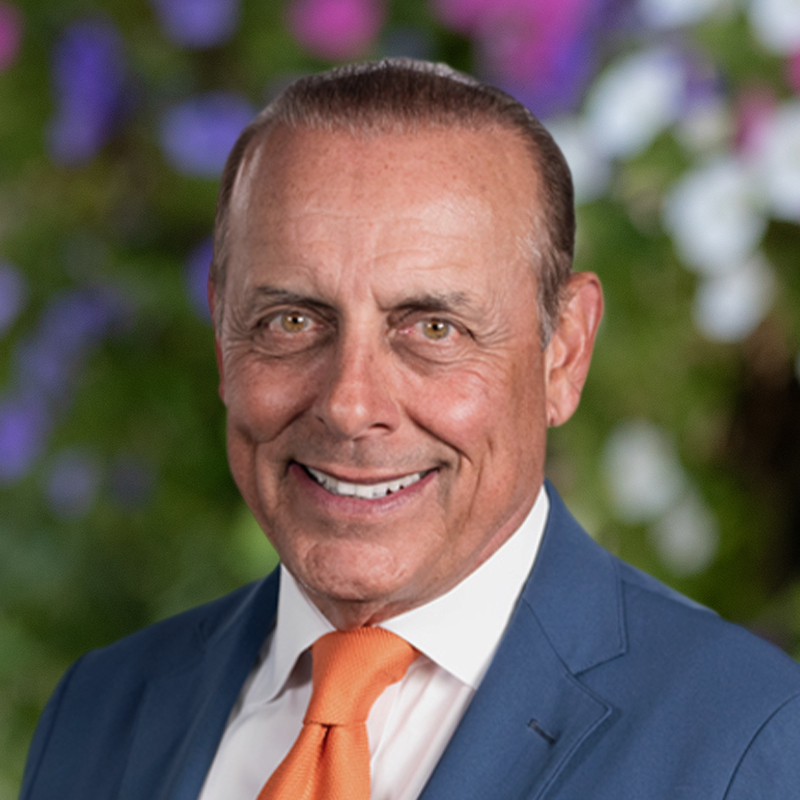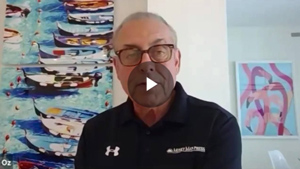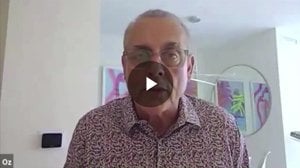Shah Gilani's Archive

Shah Gilani
Wall Street superstar and former hedge fund manager Shah Gilani is the Chief Investment Strategist of Manward Press and at the helm of the Manward Money Report newsletter and the Launch Investor and Alpha Money Flow trading services. He’s a sought-after market commentator and has appeared on CNBC, Fox Business and Bloomberg TV. He’s also been quoted in The Wall Street Journal, The New York Times and The Washington Post, and he’s had columns published in Forbes.
In 1982, he launched his first hedge fund from his seat on the floor of the Chicago Board Options Exchange. He worked in the pit as a market maker when options on the S&P 100 Index first began trading… and was part of a handful of traders who laid the technical groundwork for what would eventually become the CBOE Volatility Index (VIX). He also ran the futures and options division at the largest retail bank in Britain. Shah gained notoriety for calling the implosion of U.S. financial markets (all the way back in February 2008) AND the mega bull run that followed.
Now at the helm of Manward, Shah is focused tightly on one goal: To do his part to make subscribers wealthier, happier and more free.
Buy, Sell, or Hold – Get in on the Ground Floor with This Shorted Retail Upstart
This week, I’ve got a stellar buy for you up my sleeve. Not only would buying this retailer get you in on the ground floor of a new upstart primed for success, it will also line you up to profit on what could be another short-squeeze.
30% of this stock’s floating shares have be shorted… and that spells opportunity for you and me.
Just click the video below to learn more.

I got some incredible submissions you wanted me to comment on in this week’s BS.H. Keep them coming and drop me a line at shah@totalwealthresearch.com.
Have a great weekend, folks.
The Seven “Fractional Share” Stocks You need to Own Today
When Robinhood Markets Inc. launched its trading app back in early 2015, it had a customer “waitlist” of about 700,000 investors.
It had a user list of 10 million in 2019, 13 million last year, and an estimated 20 million in January when the zero-commission-trading pioneer found itself at the center of Reddit’s r/WallStreetBets (WSB) battle against big hedge funds.
Last August, Charles Schwab had 12.5 million active accounts – making it the biggest discount broker in America. By the end of February – after the WSB GameStop (NYSE:GME) short squeeze stunned investors – that number had nearly tripled to 30 million. That’s a 140% increase in active users in just seven months.
Take the time to tally the user accounts at the top six brokerages and you’ll discover there are more than 100 million active retail traders – enough to change the way the stock market functions.
Enough to start a revolution.
But every revolution needs a spark, an ignitor to set it off.
And that spark was something the “experts” refer to as “micro-investing” or “slices” (in fact¸ you may even have seen the “slices” TV ad campaign where Schwab tells you to “own your tomorrow.”)
But I see something bigger… They’re not “slices” or “micro-investments.” They’re fractional shares.
Welcome to the “Fractional Shares Revolution.”
Talk about bringing power to the people.
It’s a way to invest in a stock like Tesla Inc. (NasdaqGS:TSLA) – recent price $650 a share – for the price of a Big Mac, a Starbucks Latte, or a tank of gas.
More important, this fractional-shares strategy is a starting point … a way of mobilizing you.
It’s a path that starts with a few dollars. And if keep snagging those fractional shares, even with spare change, it can end wherever you want – with tens of thousands, hundreds of thousands, or even a million dollars of your own.
In this special report, I’m going to tell you why this is truly a “revolution.” I’m going to demonstrate how a fractional-share strategy can work. And I’m going to give you the “Seven Fractional Shares to Buy Now.”
Buy them. Add to your positions as you see fit.
And watch your wealth grow.
Bag a Slice of this Stock and Ride Alongside One of the Most Successful Investors of All Time
If I were starting my investing career today and I was working with small $100 installments, one of the first stocks I would buy would be Warren Buffet’s Berkshire Hathaway (BRK-A).
As I write this, a single share of BRK-A is trading at an astronomical $418,484.00.
Ditch this Mexican Stock for Three All-American Buys
You need to get this Mexican stock off your portfolio. The stock is sinking, but you don’t have to go down with the ship.
In today’s BS.H, I take a dive into three other All-American stocks that could take your portfolio to the moon – including a fast-growing semiconductor developer. Those semiconductor chips are in high demand and with supply chains coming back online… Well, this stock won’t be trading at a discount for much longer.
This “Ultimate Cheap Stock” Trades at $9.80, Dangles a 6X Gain – And Will Pay You to Own It
Here’s a bit of “investing trivia” that will grab your attention: If you look at the 50 biggest winners of the last decade, 39 of them started out as small- to mid-cap stock plays.
And quite a few of them were also low-priced (as in cheap) stocks – stocks trading at $10 a share, $5 a share … or even less.
One of my all-time favorite examples of a cheap-stock winner is a company called LendingTree Inc. (NasdaqGS:TREE) – the fintech leader that’s pretty much a household name these days. We’re talking about a company that recently sported a $3 billion market value and a stock price up around $220 a share.
Impressive stuff, right?
But there was also a time when LendingTree had a minuscule market value of $60 million – and a stock that was languishing down around $5.50 a share.
From that point to today, we’re talking about a total return of about 3,800%.
That’s a gain anyone – and I mean anyone – would be thrilled to pull down.
String a few of those 20X and 30X windfalls together … and that’s how you get rich.
The issue, of course, is that this cheap-stock-climb-to-the-peak-of-Mt.-Everest takes time to play out. And stocks, like mountain climbers, periodically stop to “rest” – meaning you’re not making any progress.
What if there was a way to get “paid” for owning that low-priced stock – so that you’re getting a steady, predictable stream of cash at every point along the journey?
That scenario not only sounds great – it’s actually doable.
Indeed, that’s the “ultimate cheap stock” – one with a super-low price, a hefty long-term upside … and an income stream attached.
That’s exactly what we have for you here today: A stock with 10-bagger potential – courtesy of the sizzling housing market – and one that will pay you to own it.
If You Have an Extra $100, Grab a Stake in This Stock – Today
We’ve all heard the old maxim that “it takes money to make money” – which is certainly true.
But retail investors have another version of this adage – “It takes big money to make money” – a frustrating version that teases the promise of big fortunes … but keeps that wealth just out of reach.
I’m here to tell you that this “obstacle” no longer exists.
Great fortunes are attainable – for anyone. And that journey can start with any amount of money – even as little as $100 … or even $50.
Thanks to the advent of commission-free trading and the ability to buy “fractional shares” through companies like Robinhood or Charles Schwab, there’s been a revolution in the stock market – and retail investors are the big winners. These changes make it possible – and affordable – to buy small slices (fractional shares) of an individual stock – no matter how expensive its trading price.
Here’s why I’m telling you this.
Starting today, Total Wealth is going to make you part of this revolution. Each week, we’re going to spotlight the best places to take the extra $100, $250, or $500 you may have – and put it to work.
This Week on the BS.H: The Next Meme Stock on Reddit’s Hit List
Reddit is still on the prowl for stocks to squeeze, and I’ve spotted one with 39% of its floating shares shorted…
All I have to say is that Varney & Co.didn’t dub me the “man who calls it all” for nothing. This meme stock is about to be taken on a ride and you’ll want to be on it.
But that’s not the only thing on the agenda in this week’s BS.H. I’ve got four buys for you today and a neat trick for those of you who want a little more security in the markets.
So get out a pen and click the video below to get started.

Cheers!
![]()
Shah Gilani
Six Investments to Beat the Biden Tax Bite
The Taxman is coming, and he is hungry.
U.S. President Joe Biden and his gang of big government associates have unveiled a budget that comes in at a whopping $6 trillion. There something for everybody in this package – with tax credits, giveaways, and government programs of all shapes and sizes.
This Biden Bacchanalia would make Franklin “The New Deal” Roosevelt and Lyndon “The Great Society” Johnson flush with envy. President Biden is laying out one of the most “progressive” budgets anyone has seen since the 1960s. Even Jimmy Carter couldn’t have dreamt all this up.
Want some examples? I’m talking about:
- Free school for some folks from pre-school up through college.
- Two years of community college is free for everybody.
- A full $1 billion increase in food stamps.
- Massive tax breaks for electric vehicles.
- Big bucks for renewable energy.
- And yet another infusion for healthcare.
Nothing comes for free. And that includes the Biden spending plan, which creates a deficit of $1.8 trillion this year and $1.3 trillion a year over the next 10 years – resulting in a national debt of $39 trillion (117% of projected GDP) by 2031.
Here’s the problem.
Somebody will have to pay for all this.
That “somebody” is you and me.
And those payments can be made only one way – through higher taxes.
Ruthlessly higher taxes.
Welcome to the “Biden Tax Bite.”
And there’s only one way to beat it – by getting out in front of it.
This Industry Giant’s Stock is on SALE – Buy Now Before Prices Sky Rocket
In this edition of BS.H, I cover an industry giant that is a screaming buy – a must-have for any portfolio. This powerhouse stock could hit $300 per share in the next 18 months, so you’re going to want to buy in now while it’s trading at a massive discount.
I also included a special treat – an energy stock with a 5.83% dividend payout.
Just click the video below to get all the details!

Keep these stock questions coming! Send me an email about the stocks on your watchlist at shah@totalwealthresearch.com.
Have a great weekend,
![]()
Shah Gilani
A Week After Its IPO, I’m Looking to Short FIGS
Initial public offerings (IPOs) are always one of the hottest areas of the stock market – and attract the ardor of investors and traders, alike.
One brand-new IPO received an even-greater-than-usual amount of attention – because it was the first to debut on the Robinhood trading platform.
Total Wealth’s Shah Gilani has been watching the company – and the deal – and gave us a great analysis ahead of its debut last week.
Today, on the one-week anniversary of the stock’s debut on the Big Board, Shah looks at the deal again, tells us what comes next – and tells you how to trade it.
Here’s an edited transcript of Shah’s talk with Total Wealth…

